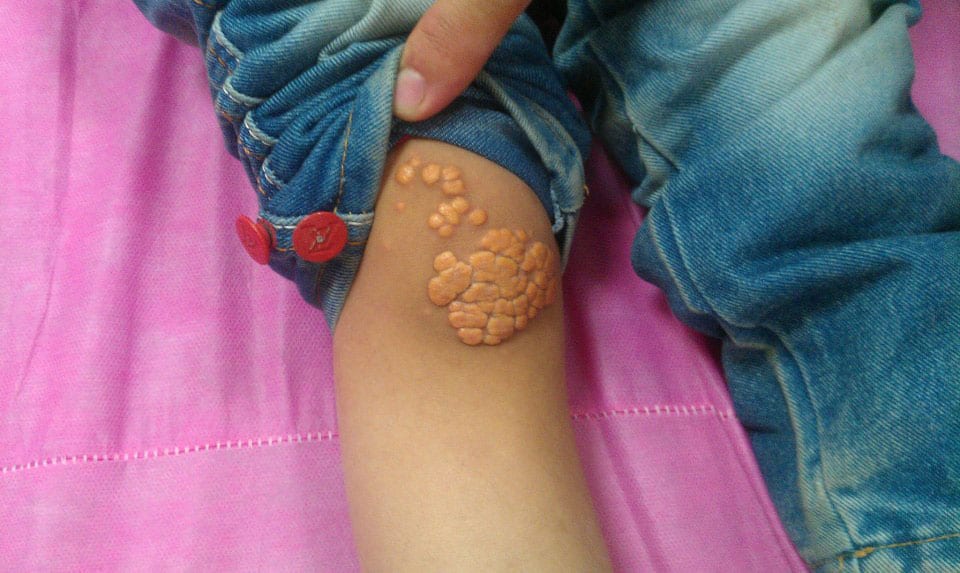High cholesterol, particularly low-density lipoprotein cholesterol (LDL-C) is a problem for many people, but none more so than those who have the genetically inherited condition familial hypercholesterolemia (HeFH) and homozygous familial hypercholesterolemia (HoFH).
Both are more serious because they are inherited and are harder to treat. Both can lead to early cardiac disease, sometimes with fatal consequences.
HeFH is more common, and occurs in approximately 1 in 300 to 500 individuals. People with HeFH have high cholesterol from birth, and begin to develop eye problems (arcus corneae) in their 20s.
HoFH, however, is estimated to occur in 1 of every ONE MILLION people!
Sufferers show fatty yellow deposits under their skin, called xanthomas, and develop arcus corneae as children. Untreated, it can cause premature cardiac events when the person is in their thirties.

Patients are urged to make lifestyle changes that include low-fat eating plans and physical activities. Even with such changes, LDL-C reductions are insufficient. Initial pharmacologic therapy includes statins and reductase inhibitors. Patients with HoFH may not respond to this type of therapy, and may require additional treatment that may include ezetimibe, niacin, or bile acid sequestrants (BASs).
When medication, diet, and exercise, aren’t sufficient or are contraindicated, LDL apheresis may be considered. Apheresis is the process of filtering the blood through a spinning process to manually remove lipids. Patient who undergo this process must attend frequent sessions of one to four hours in length, may have to travel significant distances for therapy, and have good veins. The cost of apheresis is approximately $45,000 to $100,00 per year. Gene therapy is currently under investigation, and is not yet available.
There is encouraging news, however.
Over the past few years, as reported by the Pharmacy Times, two new treatments have come to market. Mipomersen (Kynamro) and Lomitapide (Juxtapid) have been approved by the FDA to treat HoFH. Both have been shown to significantly reduce LDL-C for HoFH patients, however, both come with significant side effects, and a high annual cost. With the high cost of pharmaceutical treatments being hotly debated, it’s unfortunately up to the patient to choose life or a lack of money.
Still, if you suffer from HoFH, it’s worth discussing with your doctor.






